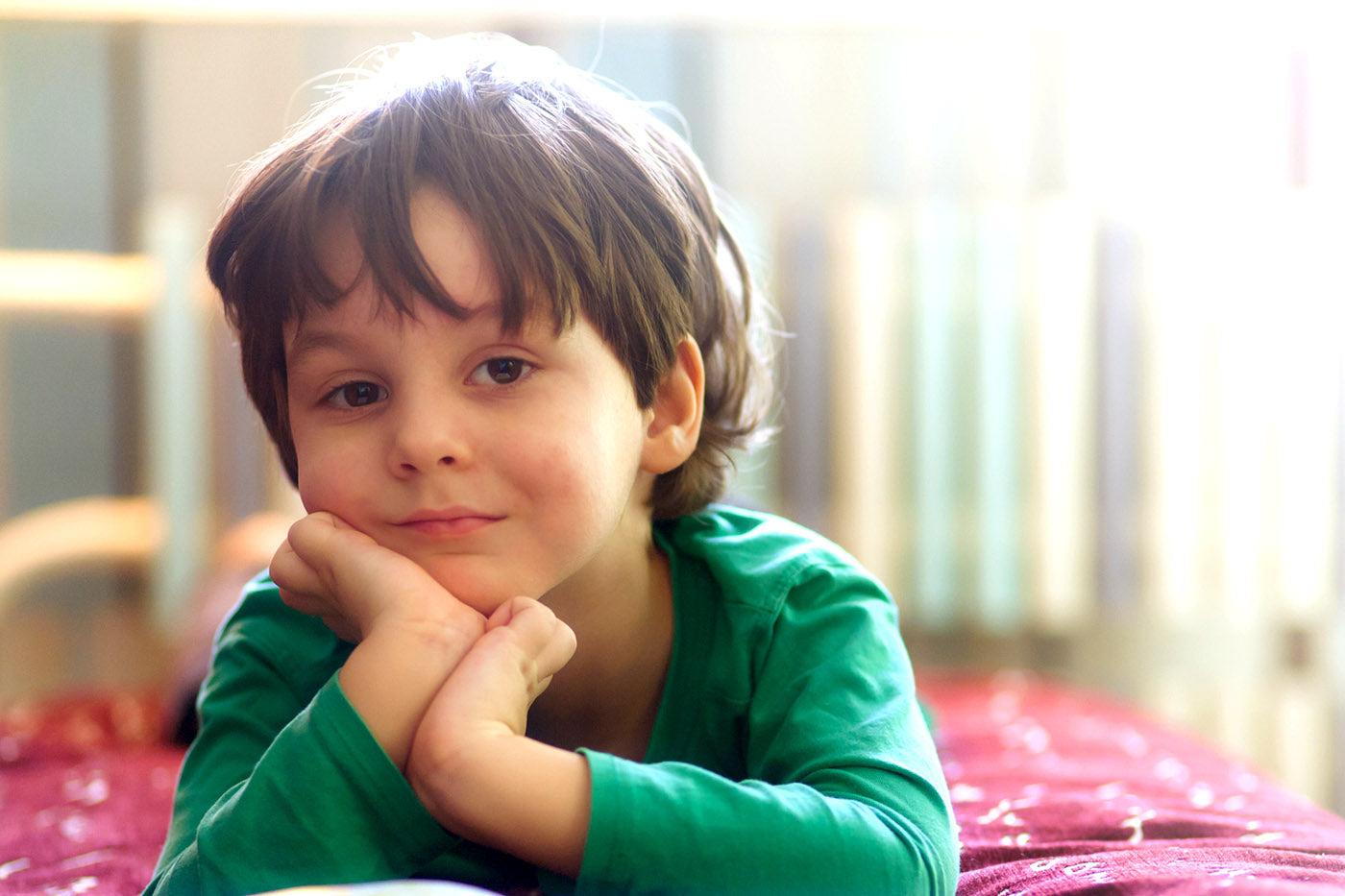TODDLER
How to Talk To Your Child About Death
Your preschooler may suddenly have dark questions. Learn why he's asking and how you can handle it.

Written by
Dr. Harvey Karp

Telling Your Child About Death
Your little preschooler is full of interesting thoughts and observations…including wondering about death. Why do little kids have so many questions about death? And what is the best way for us to respond?
What do you say when your child asks about death?
Take a slow deep breath and show your interest and respect for their question. Perhaps say: “Hmmm…. I can see you’ve been thinking a bit about this.” Before you rush to give an answer, try to understand what your child wants to know …and why now. Offer an opportunity to express any thoughts that might be just below the surface of their original question.
Something like: “Sweetie, you have eagle eyes and are super good at paying attention and you notice a lot of things. Did you see something that made you start thinking about dying? Maybe you saw a picture or you heard people talking?”
And, if you are feeling numb and really don’t know what to say…that’s okay! Not every question needs to be answered at that very moment. Perhaps say: “Oh, Sweetheart, that’s a really good question. You know…let me think about that so I can answer you really well. But, one thing I can tell you 100%, right this second is that Mama loves you and I will always be here to protect you. Let’s think on that a little more and see if we can figure it out together, tomorrow.” Don’t worry if this is not being totally transparent with your child and that you will not “always” be there. Young kids do best with a strong and predictable foundation and confidence in the world around them. That is the comfort they need in the moment and in the immediate view of the future. Of course, the next day you should bring it up, but start out by asking a bit more about what your child heard or saw or how she is thinking about it.
Why do kids talk about death?
It may be unsettling to hear your preschooler talking about death but it’s developmentally normal. At this age, they’re obsessed with the “whys” of the world. They’re trying to make sense of everything in the world around them…including death. They may have seen a character die in a movie or overheard a discussion about an elderly relative. They may even pick up on our reluctance to discuss death…which makes them even more curious…and worried.
Your young child lives in a magical world. He thinks everything has a purpose and that adults have special powers. Even if kids have heard about death, they usually think it is something temporary and reversible.
If your child asks you if you will die, you shouldn’t lie, but rather calm his fears by saying something like: “I am going to stay very, very healthy…and eat good food and get sleep and exercise and I will be with you for a long, long, long, LONG time…so long that you will say ‘leave me alone, Mom, I want to do a couple of things on my own without your help!” Take this as an opportunity to talk about living a healthy life.
How to Handle the Death of a Loved One
When discussing death, euphemisms like saying someone “passed away” or “we lost” someone. These may confuse young children and lead to anxiety about their own welfare.
Of course, every situation is unique, but I would suggest using simple, straightforward language: “We are so, so sad that Grandma died last night.” Then put it in a context that is familiar to the child. “Do you remember when our dog died (goldfish died, we saw a dead bird, saw a dead flower)? “That means Grandma’s body stopped working, and we don’t get to see her anymore.” “That makes Mommy very sad. And, it’s okay if that makes you feel sad, too. But, the good thing is that our love for Grandma will always, ALWAYS live in our heart and all the good times we had together and all of her love for you will always, ALWAYS live inside our memory of her.” “In another day or two, let’s think of some things we can do together to help us always remember all the fun times we had being with Grandma.”
When a child experiences a death, whether a relative or a pet, it helps them if you take steps to memorialize the deceased with a tribute scrapbook or keepsake box. This will give children something concrete to do with their grief and their questions. It also makes for a way to always remember and feel like the deceased is still present.
It’s also helpful to point out to young kids how the flowers and trees around them exemplify the simple truth of death and rebirth. Pointing that out can help them feel more at ease with the normality of death and the replenishment of life. You might say, “Death is really interesting and even grownups are still figuring it out. But we know a lot of stuff about it. For example, look at the flowers or the leaves on trees. They die every year…and then come back again, fresh and beautiful. Leaves fall to the ground and then become broken and wet and become the ground again and feed the trees to help them grow and make new leaves. We are part of things that are always around us forever and ever…we breathe air that was always there and drink water that goes through our bodies…then out…then into the ground and the oceans which becomes clouds and rain and is used over and over again. Some people think that’s what happens to us when we die.”
If your religious beliefs include an afterlife, you can include that in your explanation but keep it simple. If someone dies, you can say “they’ve died and they’re in heaven now.” Again, avoid confusing euphemisms like “they’re at peace” or “they’re resting.”
Although this can be a challenging conversation for all of us, children’s interest in death is completely normal and the best thing is always to be honest, but simple (because none of us have fully unraveled the mysteries about life and death) and reassure your child to keep the lines of communication open.
Disclaimer: The information on our site is NOT medical advice for any specific person or condition. It is only meant as general information. If you have any medical questions and concerns about your child or yourself, please contact your health provider.
SHARE THIS ARTICLE
MOST LOVED
Sleepytime Sidekicks












